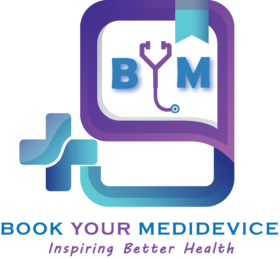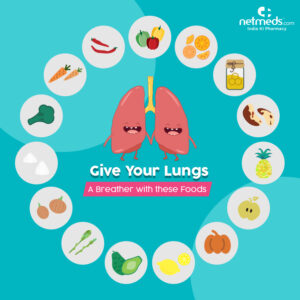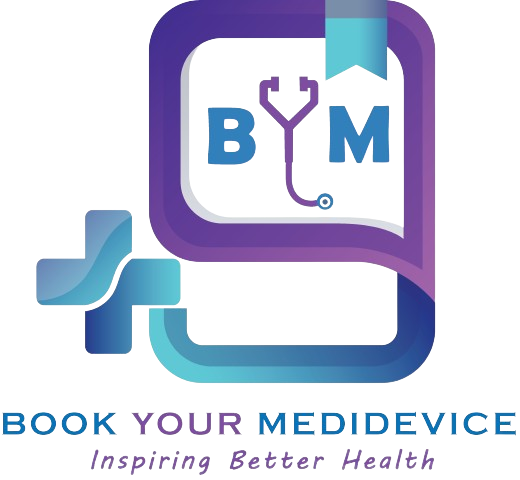Best Diet For COPD Patients
July 31, 2024 2024-07-31 10:32Best Diet For COPD Patients

Best Diet For COPD Patients
Adhering to the best diet for COPD patients is crucial for managing symptoms and enhancing overall health. The best diet for COPD patients focuses on several key nutritional elements to support lung function and maintain well-being. A balanced intake of macronutrients is fundamental; lean proteins such as fish, chicken, and legumes are important for preserving muscle strength, which is essential for effective breathing.
In essence, following the best diet for COPD patients involves a comprehensive approach to nutrition that addresses all aspects of respiratory health. By incorporating these dietary principles, individuals with COPD can better manage their symptoms, improve their daily functioning, and enhance their overall quality of life. The best diet for COPD patients ultimately plays a pivotal role in the effective management and mitigation of COPD symptoms.
Stop Consuming Caffeine
Drinks such as coffee and tea and foods like chocolate all contain caffeine, a stimulant that can prevent you from falling asleep. If you’re drinking or eating caffeine, stop by early afternoon. Too much caffeine, in any form, especially at night, can impact sleep health, which can affect breathing health.
Eat Complex Carbohydrates
Whole grain breads and pastas and some fresh fruits and vegetables are all considered complex carbohydrates. Metabolism of carbohydrates produces the most carbon dioxide for the amount of oxygen used. Foods with complex carbohydrates provide you with vitamins, minerals, and fiber – the energy your body needs.
Other good sources of complex carbs include:
- Beans of any type including peas and lentils
- Fiber-rich vegetables like sweet potatoes, corn, and squash
- Whole grains including brown rice and oatmeal
Limit Simple Carbohydrates
While complex carbohydrates are beneficial for COPD patients, simple carbohydrates are not. Simple carbohydrates include sugar, candy, cake and other baked goods, and soft drinks. Even fruit juice concentrates are simple carbs that should stay off your menu. Simple carbohydrates can lead to weight gain and increase your risk of diabetes, heart disease and high cholesterol. All of these health factors can only make breathing more difficult for someone with COPD. Try to avoid foods with simple carbohydrates.
Avoid Foods Which Induce in Formation of Gases
While fruits and veggies are healthy overall, some can cause gas and bloating, which is not helpful to someone with COPD. Broccoli and Brussels sprouts can generate a lot of gas and bloat. Greasy and fried food and carbonated drinks can also contribute to uncomfortable levels of gas. Use your discretion when selecting the foods you eat to see what works for you.
Consume Potassium Enriched Foods
COPD patients who take diuretics require extra potassium. Some COPD patients will benefit from extra potassium which can be found in bananas, oranges, tomatoes, potatoes, and asparagus. For a person with COPD, breathing burns as many as ten times more calories than it does in those without COPD, so starting the day with a nutritious breakfast can supply the calories and nutrients needed for the day.
Consume Fresh Fruits and Vegetables
Choose a colorful diet filled with nutrient-dense fruits and vegetables. Reach for more digestible fruits and vegetables that do not cause bloating — leafy greens, cucumbers, bell peppers, carrots, berries, pineapple and grapes. Everyone is different. So, if you love certain fruits and veggies that do not lead to bloating and gas then you are good to go.
Consume Starch Enriched Vegetables
Starchy vegetables are all considered complex carbohydrates that are healthy for COPD patients. Metabolism of carbohydrates produces the most carbon dioxide for the amount of oxygen used. Foods with complex carbohydrates provide you with vitamins, minerals, and fiber – the energy your body needs. Try vegetables like sweet or white potatoes, corn, squash, beets, and turnips.
Add Cheese to Your Diet
While too much dairy in the diet is not always good for COPD patients, adding some dairy like cheese can increase the calcium that you need. Sometimes lighter cheeses like cottage cheese are preferred. Be sure not to add dairy-like cheese to your diet, as it can lead to excess mucus production which can affect breathing.
Consume Foods Containing Omega 3 Fatty Acids
Choose foods rich in Omega 3 fats. These are fats that are often liquid at room temperature and come from plant sources, such as canola, safflower, and corn oils. When choosing to eat a higher-fat diet, instead of choosing fried foods, opt for snacks and meals containing fats like avocados, nuts, seeds, coconut and coconut oil, olives, and olive oil.
Drink Plenty of Fluids
Drinking plenty of water is important not only to keep you hydrated but also to help keep mucus thin for easier removal so you can breathe easier. Talk with your doctor about your water intake. A good goal for many people is 6 to 8 glasses (8 fluid ounces each) daily. Don’t try to drink this much fluid at once; spread it out over the entire day. Remember, any healthy caffeine-free fluid counts toward your fluid goals.
Take Vitamins And Minerals
Vitamins and minerals are essential for maintaining lung health. Many people with COPD find taking a general-purpose multivitamin helpful. Often, people with COPD are taking steroids as part of their treatment. Long-term use of steroids may increase your need for calcium. Consider taking calcium supplements. Look for one that includes vitamin D. Calcium carbonate or calcium citrate are good sources of calcium. Before adding any vitamins to your daily routine, be sure to discuss them with your doctor.
Limit Sodium Intake
Too much sodium in your diet may cause edema (swelling) that may increase blood pressure. If edema or high blood pressure are health problems for you, talk with your doctor about how much sodium you should be eating each day. Ask about the use of spices and herbs in seasoning your food and other ways you can decrease your sodium intake. Be aware that a lot of processed foods from the grocery store and restaurants have a higher sodium content than you may realize. Be conscious of salt content, especially in store-bought or take-out foods.
Eat Food Enriched with High Protein
Eat high-protein, high-quality foods, such as grass-fed meat, pastured poultry and eggs, and fish — particularly oily fish such as salmon, mackerel, and sardines. Protein is important for people with COPD because it produces antibodies that fight infection. To add more protein to your diet you can include skim milk or non-dairy calcium-rich protein powder to hot beverages, cereal, eggs, soups, casseroles, gravies, and ground meat or legume dishes. This will add extra protein and calcium to your diet.
Conclusion
The journey to better lung health is multi-faceted, incorporating both diet and innovative respiratory technology. Embrace a balanced diet and leverage the support of the Portable Oxygen Concentrator to enhance your respiratory efficiency. This powerful combination promises not just survival but a thriving life, even in the face of respiratory challenges. Breathe easier and live better by integrating these essential elements into your daily routine.
In essence, following the best diet for COPD patients involves a comprehensive approach to nutrition that addresses all aspects of respiratory health. By incorporating these dietary principles, individuals with COPD can better manage their symptoms, improve their daily functioning, and enhance their overall quality of life. The best diet for COPD patients ultimately plays a pivotal role in the effective management and mitigation of COPD symptoms.




